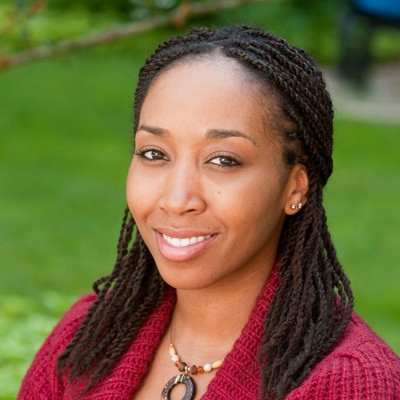
There’s always room for improvement…and research on the mental health of black men is no exception. Daphne C. Watkins, PhD, assistant professor of social work and president of the American Men’s Studies Association (AMSA), is diligently working to advance men’s studies as an academic discipline.
“I teach my students that research is ‘me search.’ If we embrace this fact, then it can help us shed light on what makes each of us who we are,” Watkins explained. “I grew up seeing very different gender roles in my community, even within my own family, and I wanted to understand why we hold ourselves to such tight gender roles, especially if it means our health and happiness are at risk.”
Watkins grew up in a racially and economically diverse community in the Tidewater region of Virginia, where she was exposed to a number of different mental and emotional challenges held by both men and women. For example, despite the physical presence of many of the boys and men from her community, they were not always emotionally present in their families.
Passion is often the driving force behind our efforts and our success…what you care about is what gives you an edge in life…and it should not matter if you are a man or a woman.
“My family relationships were the beginning of my interest in men’s health, particularly black men’s depression. I wanted to understand why men (who are experiencing poorer health because they feel bounded by society’s gender roles) don’t push against the boundaries set by society,” Watkins said. For the past decade, Watkins has had a passion and a hunger for understanding men’s mental health, and she’s quick to note how happy she is to see that many of the men from her hometown have made some progress with understanding the link between their adherence to gender roles and their emotional health.
“I love going back home because the changing times have resulted in my community being more open-minded to doing what makes you happy — regardless of whether it is traditionally a man’s responsibility or a woman’s responsibility. Through my men’s studies lens, I have enjoyed being able to assess how differently our family relationships are now compared to how they were when I was a child,” Watkins said.
Men’s studies is an academic discipline that has been in existence since the early 1970s, and in spite of AMSA’s two decades of the critical study of men and masculinities, Watkins is the first woman and person of color to be president. Despite this, Watkins is quick to point out that research in the field of men’s studies has increased exponentially, and that the discipline is moving from a developmental stage of an innovative, non-traditional academic field to one of extensive research and broader understanding.
“AMSA brings together scholars of a variety of disciplines…medicine, law, humanities and social sciences… to examine men’s studies from a broad perspective and identify the strengths and weaknesses of how we have understood boys and men in the past, and how we plan to address this understanding in the future to improve their lives,” Watkins said.
Her current projects focus on black men’s depression and the benefits of online interventions. The online approach is in response to the large numbers of men who don’t regularly see their primary care physicians or seek help for physical or mental health issues. Technology and social media are used as a resource provided to create some needed, and trusted, information online.
“Our research focuses on mental health and how masculinities can be both an advantage and a disadvantage in addressing mental health outcomes,” Watkins said.
Watkins’ work is also beginning to transition from educating the scientific community to a focus on community-based interventions. Research shows that social scientists and practitioners often talk about mental health with terminology that is not always defined the same for everyone, and as a result, researchers are working to develop terminology which will be relevant to end users.
“Passion is often the driving force behind our efforts and our success…what you care about is what gives you an edge in life…and it should not matter if you are a man or a woman,” Watkins said. “As a scholar of men’s studies, all of us benefit from more research in this field.”